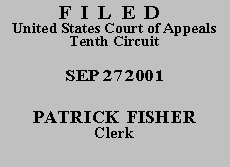

| UNITED STATES OF AMERICA,
Plaintiff-Appellee, v. PAUL EUGENE CHILTON, Defendant-Appellant. |
|
Paul Eugene Chilton appeals from the district court's orders denying his motion to vacate, set aside, or correct his sentence brought pursuant to 28 U.S.C. § 2255. Appellant was sentenced to 297 months in prison and five years' supervised release following his conviction of various drug-related crimes. Our jurisdiction over this appeal arises under 28 U.S.C. §§ 1291 and 2253. Under the provisions of § 2253(c)(1)(B), appellant must obtain a certificate of appealability before this court considers his appeal. The district court denied appellant's request for a certificate of appealability, and appellant has renewed his request before this court. To obtain a certificate of appealability, appellant must make "a substantial showing of the denial of a constitutional right." Id. § 2253(c)(2). Respondent has not filed a brief in this appeal.
Appellant has also moved for leave to proceed before this court without prepayment of costs or fees. He was granted leave by the district court, and that determination carries over to his appeal here. Therefore his motion to proceed without prepayment of costs or fees is denied as moot.
Appellant presents three arguments on appeal, challenging both the drug quantity on which he was sentenced and the validity of the search leading to the drug seizure. He first contends that his trial counsel was unconstitutionally ineffective because she relied on the drug quantities calculated by the government's expert chemist and failed to hire a chemist to make independent calculations. He points to the calculations of an expert chemist hired by his counsel during habeas proceedings before the district court as evidence that the drug quantities used in sentencing were excessive. Second, appellant argues that counsel was ineffective because she failed to challenge the search leading to the drug seizure as pretextual under the facts of the case. Third, appellant contends that remand to the district court is required in light of intervening authority, Apprendi v. New Jersey, 530 U.S. 466 (2000).
After careful review of the record on appeal, together with appellant's arguments, and in light of the applicable law, we conclude that appellant has not demonstrated his eligibility for a certificate of appealability. Therefore, appellant's motion for a certificate of appealability is DENIED and this appeal is DISMISSED. The mandate shall issue forthwith.
Entered for the Court
Circuit Judge
*. This order and judgment is not binding precedent, except under the doctrines of law of the case, res judicata, and collateral estoppel. The court generally disfavors the citation of orders and judgments; nevertheless, an order and judgment may be cited under the terms and conditions of 10th Cir. R. 36.3.